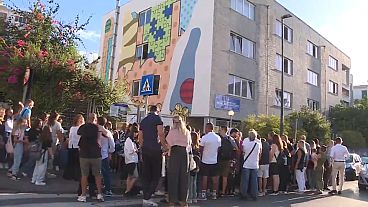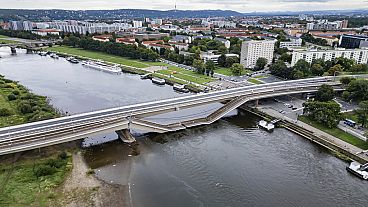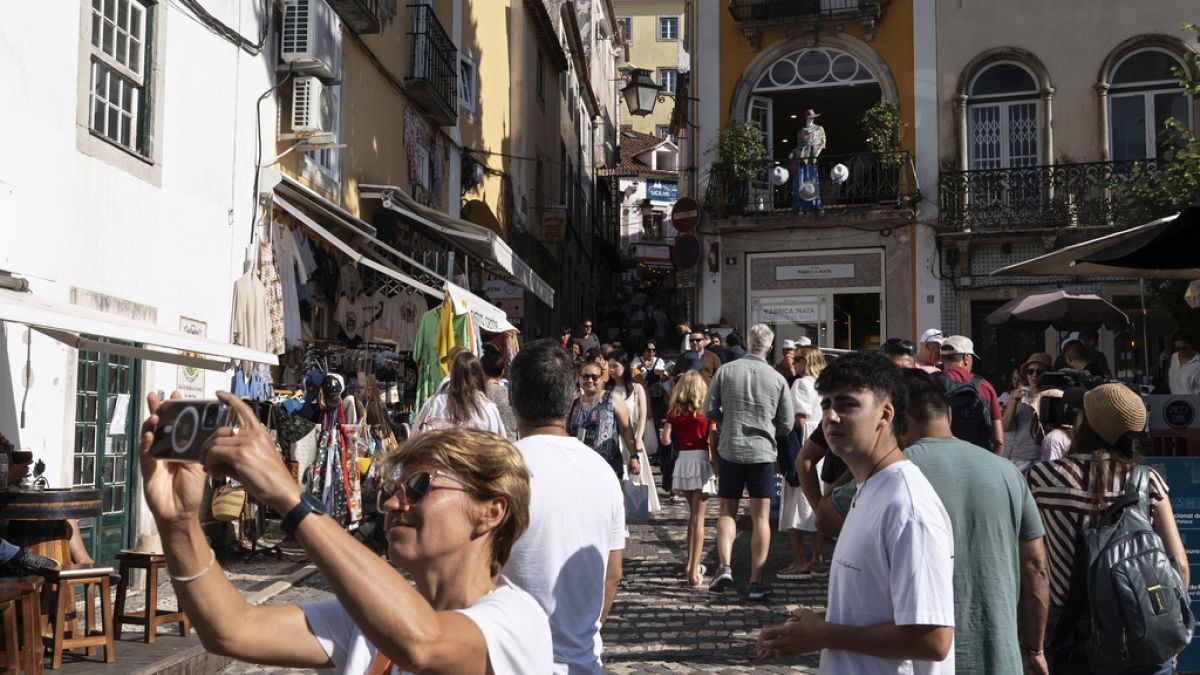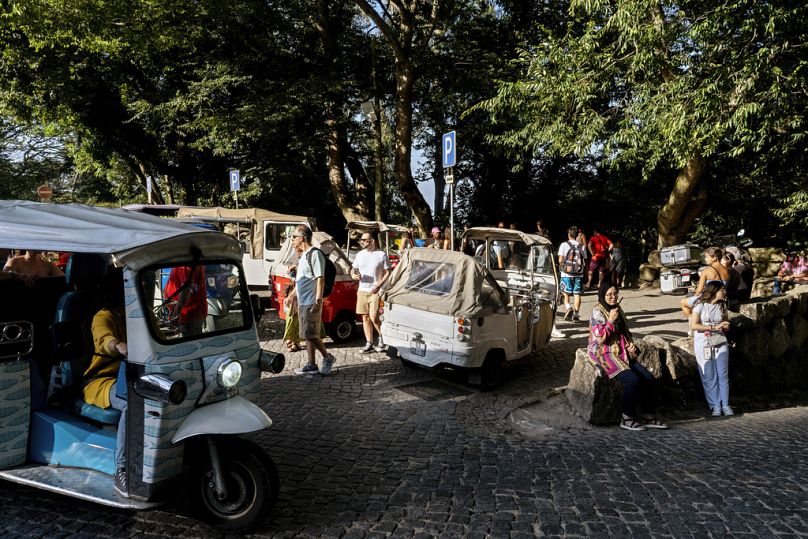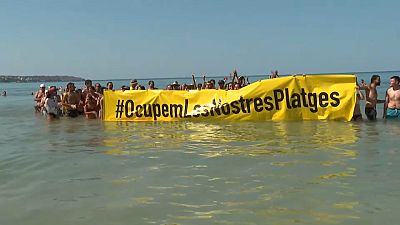Some residents say tourist traffic is even stopping them from leaving their homes.
Fuelled by the rise of tourism in Portugal, the narrow streets of the country's capital Lisbon have become clogged with tuk-tuks.
From her balcony, Rosa Alves says she doesn't even try to count the small motorised vehicles anymore.
They appear as soon as the sun rises, carrying tourists to the top of the hill, and carry on until late in the day.
The 78-year-old pensioner has been living in her apartment for the past 50 years but she says things have never been worse in her beloved neighbourhood. There are more tourists, tuk-tuks and traffic, she says.
According to Rosa and local media, sometimes residents can’t even leave their homes due to traffic and parked tuk-tuks blocking their path.
“For the last five, six years this has become a mess. All over Graça [ Rosa's neighbourhood], there has been a serious change for the worse" she says.
On the other side of the road, a piece of graffiti says 'Stop Gentrification'.
Alves didn't write it but she sympathises with the message.
She has seen other changes in her neighbourhood: her neighbours started to leave and were replaced by anonymous strangers staying in holiday rentals.
Lisbon's deputy mayor has suggested limiting the number of tuk-tuks that are allowed on the city's narrow streets, though this measure has yet to be implemented.
"Traffic jam in paradise"
In Sintra, a town near Lisbon famous for its castles, local activists have started a movement called QSintra.
It is challenging City Hall to “put residents first” with better communication, for a start. They also want to know the government's plan for managing guests at a new hotel being constructed to increase the number of overnight stays, and more limits on the number of cars and visitors allowed.
“We're not against tourists,” reads the group's manifesto. “We're against the pandemonium that (local leaders) cannot resolve."
QSintra join scores of locals across Europe who are protesting against the negative impacts of overtourism on their lives.
There is a strong movement in Barcelona where tourists have been sprayed with water and an overcrowded bus route has been taken off Google maps to try and hide it from tourists. In response, local authorities have raised tourist taxes and vowed to stamp out Airbnb rentals.
Last year, Mallorca residents placed fake signs on local beaches warning tourists to stay away, while in neighbouring Ibiza there have also been protests against overtourism.
What is overtourism?
Overtourism describes the tipping point at which visitors and their cash stop benefitting residents and instead cause harm by degrading historic sites, overwhelming infrastructure and making life markedly worse for those who live in the destination.
But look a little deeper and you'll find knottier issues for locals and their leaders, none more universal than housing prices driven up by short-term rentals like Airbnb, from Spain to South Africa.
Some locals are asking authorities to encourage higher quality tourism, meaning visitors stay for longer in one place and spend more while they are in the destination.


